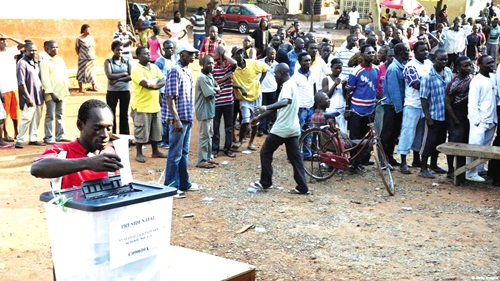
Those who have never told us, win or lose, exactly how much they spent in their bid to become an elected party executive, Member of Parliament, or president.
Across all these elections, it is safe to assume that the least costly is running for an elected party position at the local level.
The cost of trying to win a polling station executive position pales in comparison to that of the national chairman of a party.
In a recent exploratory study by the Ghana Centre for Democratic Development (CDD-Ghana), the estimated cost of winning a presidential election was pegged at $150 million and $693,000 for a parliamentary election.
If all candidates who run for these two elections were to publicly make available their campaign finance and expenditure records, we could get an even clearer picture of the cost.
But why is the cost of running for elected office coming up again for discussion in the public square?
It is the cost of participating in the presidential primaries of the New Patriotic Party (NPP) slated for January 31, 2026. As reported by the Daily Graphic, “the NPP is requiring all prospective aspirants to pay a non-refundable application fee of GH₵100,000 and a filing fee of GH₵500,000 — both payable via banker’s draft to the party’s national headquarters in Accra. An additional development levy, yet to be disclosed, will also be mandatory”.
As per my research, this represents a six-fold increase between the nominating contest for the 2016 and the 2028 election.
Let’s assume the mandatory development levy is GH₵100,000; it brings the total cost of contesting to GH₵700,000. And let’s further assume other campaign expenditure costs between now and January, travelling the country to win over members of the party’s electoral college of about GH₵300,000.00.
This means a probable cost of GH₵1,000,000.00 to win the primary.
Ensuing Debate
If I can accurately sum up the debate, there are two camps.
One camp argues that an aspirant’s ability to raise the money to contest is a sign of resourcefulness.
That kind of resourcefulness is not only needed to clinch the nomination, but more importantly, for the general election, which is even more costly to the party and the candidate.
In essence, if you can’t raise this money, you have no business trying to become flag bearer and ultimately president.
The other camp argues that this high cost associated with contesting in internal party elections creates entry barriers and turns them into a money contest and not one of merit.
In essence, the candidate with the most money likely wins and not the one most qualified.
It does not mean the candidate with the most money is not qualified to be president.
It is, however, a stark warning of the dangers of the undue influence and role of money in our democratic politics.
Points for Reflection
I share the sentiments of those who describe these filing fees as exorbitant, not because of the price tag alone, but the message it communicates about our democratic politics.
Let me quickly add this.
For the party, organising elections certainly has associated administrative costs and, therefore, such fees are helpful. For the candidate, contesting also has associated campaign costs.
My objections, therefore, are not borne out of failure to recognise the role money plays in any electoral democracy.
Rather, it is borne out of what this price tag means when a citizen decides to run for elected office.
Here are two points for reflection
First, the source of financing for candidates.
In a system where political financing rules are largely silent on candidates and campaign finance lacks transparency, such a price tag creates a perverse incentive of permitting candidates to raise money from dark sources.
Sure, critics are likely to respond with “some of the candidates have their own wealth.”
Fair enough, but how many candidates “have their own wealth” to the tune that it costs to seek the nomination and subsequently the presidency?
Critics are further likely to say, “they also have friends ready to support them financially.” Fair enough again.
And that brings me to my second reflection point – what do financiers want in exchange for financial support of political candidates?
This is especially relevant in our electoral politics, where support (financial or non-financial) is viewed as an investment to be reaped when the candidate eventually wins the office.
Are we, therefore, surprised when time and again, allegations of compromised elected public officials are also linked to “who” helped them financially to get elected?
It is not known what price tag the National Democratic Congress (NDC) will set for its 2028 nominating contest when the time comes.
Is it safe to say it will not be below the GH¢400,000 for 2020?
There is an urgent need for political financing reforms.
The writer is the Director, Democracy Project



